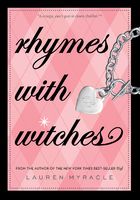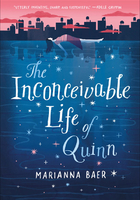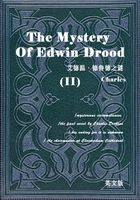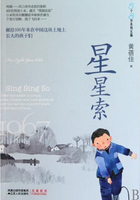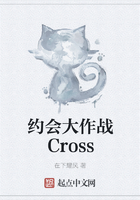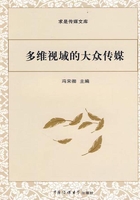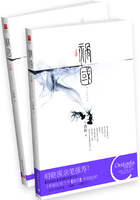A Sight of Royalty, and of Another
When a young gentlewoman loves herself so well that she can be at pains to write down small particulars of her life, as I now did in my new vellum book, she begins always, I dare say, by spying and prying and toting at herself in a glass and making the image as it were a frontispiece to her history. With a young gentleman it is otherwise: who naturally begins with a record of his illustrious ancestors and how nobly they conducted themselves in ancient battles and sieges. Or if his father should happen to be a novus homo, as we slightingly call mushroom gentlemen, who have made their fortune by merchandizing, then he will begin with his grandfather (a God-fearing yeoman of such and such a place, respectable to his neighbours) and write of him as related by blood to a certain great house; yet he will slip in for his own comfort and honour, that this grandfather was of the elder line of the aforesaid great house, which in the Civil Wars of York and Lancaster favoured the Lancastrians and lost all on Bosworth Field—whereupon they prudently changed their name from de Bolton or de Manny or de Lancaster to plain Hogman or Henman.
When I spied at myself in my hand-mirror, I saw eyes between grey and blue, a narrow forehead, a face more pointed than round, a straight nose, lips that pouted out, two gaps only where rear teeth were missing from my mouth, long narrow ears. My hands contented me when I gazed down on them, as being small and long and regularly formed; and now, after I had lain ten days in bed, they were as smooth and lovely, from idleness, as though they had been washed every day in milk and rose-water. As for my hair—I write not in my own praise, for the growth is natural—this was the wonder of all who saw it, being so long it reached to my girdlestead and so thick it cost me half an hour every morning to comb it well through. Zara had no love for my hair, for hers was of rat-colour, lank, thin, and not over-long.
I am below the usual height for a woman, but my legs are proportionable to my body; I have known women of low height with a body of ordinary size and stumpy legs like a goose—they are called "spuds" in Forest Hill. My bosom is good and has never lolled upon my ribs. My skin, as I saw it in the mirror, was not staring white, but rather the colour of a peach and with the same light down, or bloom, upon it. Whatever I might have said to Mun on the first day of our acquaintance I liked my face and whole person well enough; yet I had been unripe then, my body like a boy's and the bones of my head green and unformed: especially, my nose was not yet grown to its full size. Now these defects were remedied.
My name, Marie, was given me in compliment of King Charles's Queen, whom His Majesty never called by her first name, Henriette, but always by her second, Marie. She was married to him a few months before I was born. Afterwards I saw her often in Oxford with the King, but the first time I set eyes on either of them was at Enstone (which lies a few miles northward from Woodstock), at the house of Esquire Thomas Bushell, when I was ten years old. We Powells had a familiar acquaintance with our neighbour Sir Thomas Gardiner the Elder, of Cuddesdon, who was the Recorder of London, and with his son, Sir Thomas the Younger, who afterwards married Mun's little sister Cary. One day in August the younger Sir Thomas called upon my father and said that in two days' time, namely on August 23rd, there were to be great doings at Esquire Bushell's house over at Enstone, and that Their Majesties themselves would be present. Sir Thomas asked my father, would he not ride with him? and undertook that he would be well entertained. My father excused himself, pleading that the notice was too short: he had neither hat nor doublet nor lace fit to wear in Their Majesties' presence, and doubted whether he could prevail on the tailors to make a gentleman of him in two days. "Besides," says he, "the barley on Picked Stone piece is mown to-day and in two days' time we shall cock it, and I must see that it is well cocked."
However, Sir Thomas said that, early on the day of Their Majesties' visit, his mother and a young she-cousin would ride by our house in a commodious new coach, on their journey from Cuddesdon to Enstone, and he would accompany them on his horse. He asked my father, would not his two elder daughters ride in the same coach, undertaking that they would be welcome and well cared for.
My father was well content that Zara and I should go, for it so happened that we had been bridemaids that very week at a marriage of my cousin, Agnes Archdale, and were provided with new gowns of cream satin, the short sleeves caught at the elbow with gold rosettes; and my mother would lend me her necklet of little pearls and a Greek lace apron. Sir Thomas did not yet inform us of the spectacle that we should see at Enstone, but kept it secret from us.
The day came, we climbed into the coach and after we had passed Beckley by, where we had sometimes ridden on a pillion behind our father and our brother Richard, and passed by the spot, above Noke, where three church towers are to be seen set in a straight line, we came to the town of Islip. We had not visited this place in the summer time for two or three years, for most of our rides were in the contrary direction, to visit our land at Wheatley or to go down into Oxford City; so that it seemed new to us. It was a small town, but with every house, almost, an ale-house, and the rest forges and wheelwright shops. There were two or three drunken men lying face-downwards in the gutters, and others in the grass about the elms at the Church gate; the like of which we seldom saw at Forest Hill, even on a holiday, and never, as here, in the morning, our constable being so terrible to drunkards. The reason of the many ale-houses and forges was that there is great traffic of coaches and carts through Islip because of the stone bridge, which is the only one about for miles, the land spreading marshy and flat on either side. Here is firm land even in February; and a little sedgy stream, the Ray, a confluent of the Cherwell, running under the bridge; and tall aspen trees, very pretty; and great flocks of gaggling geese.
On our right hand, as we drove out of the town, we passed by an old barn and stables in a field, at which the coachman pointed with his whip and "There, my young gentlewomen," says he, "stands the Chapel of King Edward, called the Confessor, a Saxon; and the cattle drink out of his font, and, S'neaks, so they should, for he was of the Romish religion, no true Christian."
Sir Thomas told us, through the coach window, that it was this King who first had the gift, from an angel, of touching those sick from the itching scrofula, or King's Evil, and healing them; from whom the gift had been conveyed in a direct line of descent to his then Majesty King Charles, the truth of which we should perhaps see that same day. And he said that it was at Islip, from a quarry opened by King Edward, that the stone was hewn from which was built the Abbey of Westminster in London, being floated in barges down the Cherwell river.
Sir Thomas went off the road to salute some friend at Hampton Gay, and promised that he would be with us again at Enstone. We then passed through Kidlington, where we saw the great hollow elm that was used as a jail, and through other places not remarkable, until we came to Woodstock, an ancient town where they make fine gloves and very good knives. Here were throngs of citizens and their wives in the streets, wearing holiday dresses and hoping for a view of Their Majesties' progress. The house-gables were hung with flags, standards and streamers, and silk hangings drooped from the windows, with abundance of flowers—as roses, peonies, sweet-williams and monk's hood-set in the windows of the meaner houses. The Mayor and his officers in their robes stood at a corner and were continually asking: "Are the outriders yet come? Are they not yet come?"
We baited at the Bear Inn and ate bread and green-cheese, and a pot of quince-marmalade that we had with us in the coach, and sent in for a can or two of small beer. Then, the weather being fair and the road clean, we walked to the town's end, while the coach followed a little behind us; and so came to the house called Chaucer's House and to the gate of the Royal Park. This park King Henry I had enclosed with a wall to be a harbourage for all manner of wild beasts procured from other princes, to run at large; he had camels, and lynxes, and leopards, and lions, but they remained there not long, for they preyed on one another and did not procreate their kind. At last was left only a porpentine, a beast like a great hedge-hog who (they say) rattles his quills and shoots them out at the hunting dogs, and will kill even lions so; but this porpentine was dead many a hundred year, and now there were only buck in the Park, and a few badgers and foxes.
Yet one wonder remained, which was the Echo. We were advised to stand at the corner of a wall enclosing three hayricks, and listen while the coachman holloa'd out some words, facing towards the King's Manor, which stands upon a little eminence above a stream. This echo, we were told, would return by day nineteen syllables and twenty by night. So the old Lady Gardiner says to the coachman: "Hob, get down from your box and cry out something for the Nymph Echo, for these young girls would hear how she answers you back. Nay, take your post at the corner yonder!"
He says: "At your service, good your Ladyship, but what words shall I use?"
"Any words you please, Puddinghead," she answers him tartly, "so be it they are neither lewd nor scurrilous."
Thus licenced, he straddles his feet apart and coughs and clears his throat a little, and at last he bellows out in a great gruff voice:
"My throat is dry, my cheek is pale,
Restore my soul with a pennyworth of ALE."
At once the Echo answers back: "Hobbledy, Gobbledy, Gibble, Gabble—ALE!"
"There, children," says the old Lady Gardiner, "you heard it, did you not? Holloa again, good Hob, but pitch your voice a little higher."
Merry old Hob knew not how to pitch his voice higher, he could only shout louder; and this time he roared to the Echo again:
"My cheek is pale, my end is near,
O save my life with a shillingsworth of BEER!"
But all the Nymph would reply was this:
"Hobbledy, Gobbledy, Glibber, Globber-BEER!"
The old lady was wroth and spoke very tartly to Hob, with: "Get you back upon your box, whoreson, before you ruin us all by your thirst! You will next be asking for twenty-shillings-and-sixpence worth of cream sillabub or good sack posset!"
All this while a gentleman, whose fine bay mare was tied to the park gate, stood a little apart from us observing what we did. Zara had already plucked at my sleeve and said in a low, muttering voice: "Oh, Marie, look at that strange gentleman! Did you ever see the like of him?"
He wore plain clothes, nevertheless not ill-fitting, nor in the offensive "Lord-Thou-cast-me-down" manner of your canting Puritan, who makes short what men of honour and quality wear long, and long what they wear short, and who, avoiding cheerful colours, affects sad black or dun or maggoty grey. These clothes were exceedingly well cut—the doublet of dove grey, with a falling ruff in the Dutch style; light grey silk stockings and a sleeved cloak of darker grey, inclined towards blue; a silver-hilted sword, and a plumeless sombrero hat. As for his person, he was of middle height and well-knit frame, with quick movements like those of a practised swordsman. His hair was sleek, of a light auburn, and as for his face, this it was that had caused Zara to pluck at my sleeve. It was well shaped and of a pure complexion, the chin and nose long, the forehead high, the dark grey eyes like a woman's, and the mouth small and well formed. Yet there was an inexpressible quality in it, of such haughtiness and conscious power that he seemed to stand there in arrogation of an ancient claim to be rightful Lord of the Manor—yea, even though the whole country acknowledged it to be the King's own. His lips were pursed, his eyes stared unblinking and he tapped with one toe on the ground as though he could scarcely refrain himself from passionate speech. In age he appeared to be between twenty-five and thirty years.
Well, this gentleman, after Hob had with a surly look climbed back on his box, came forward to us, uncovering with a little stiff bow. Says he: "Though I have not yet the honour to be of your acquaintance, Ladies, yet I flatter myself that I can be of service to you. That sottish Auriga of yours has no knowledge, nor so much as the least inkling, of the proper manner to address Nymphs, and by your leave, I will show these young maidens the proper manner."
The old lady was somewhat startled by this unknown gentleman's familiarity in pressing his services upon us, all unasked and in so managing a style; yet she did not rebuff him. She signified shortly that he might make his demonstration, if he pleased, for which she would thank him according to the measure of his success.
"In the first place, then, Madam," he began (speaking eloquently, like a Doctor of the Mathematic; and pronouncing his r's very hard, like a Scot almost), "your coachman stood not at the true centrum phonicun, or speaker's place, which (by my reckoning) is about thirty paces below the corner of the wall where he stood. The distance from the brow of the hill whence the Echo answers, is correctly judged for the number of syllables whereof I heard you speak: for by my measure it is 456 geometrical paces, which, by the agreed allowance of one syllable for every twenty-four paces, allows for the return of nineteen syllables. But, as I say, the centrum phonicum is not to be sought at the corner of the wall, which lies not at right angles with the brow of the hill, but a little obliquely: rather it is here where I now stand. Again, Madam, you were right in commanding your man that he should pitch his voice high, for crass and heavy tones do not slide so easily through the medium of the close valley air as do light and tune-able ones: indeed, a woman's voice is somewhat better for the purpose than a man's, unless his be a tenor."
Then, holding up his hand for silence, imperatively, he called out a Latin verse (the words of which I have since verified for this relation) in very clear, strong, singing tones:
"…Quae nec reticere loquenti,
Nec prior ipsa loqui didicit resonabilis Echo."
This time the Echo answered him, with most faithful repetition, even the s's returning audibly. We all expressed our admiration, and old Hob from the coach cried out: "S'neaks, Echo mocks at honest English, but to Paris French she answers pat! A pox on the stale creature!"
Zara asked the gentleman: "Sir, what did you tell the Echo?"
He replied that, translated a little freely, it was to this effect: that the nymph, being a woman, had the good manners neither to be the first to begin a conversation, nor to refrain from a reply when decently addressed.
Zara chafed, believing that he snibbed her. Then, without being a second time invited, he called out again, and would not tell us what he cried, but I think that it was some very peevish verse that the Echo returned.
The old lady said: "Sir, you seem to be a man of learning. They spoke at my house the other night of tautological echoes—now tell me, what may they be?"
He explained that these are echoes which repeat the same words twice or more often; and he drew little lines in the turf with the point of his sword to explain the mathematics of it. He said: "Such a tautological echo is found at Rome, at the foot of the hill upon which is erected the white marble tomb of the Lady Caecilia Metella, and there are many ancient walls thereabouts, of which one, called the Capo di Buoi, has near 200 bull's-heads carved in marble on it. These walls, being smooth, bandy the echo between them, so that if one throw his voice along this line"—marking the line with a little sweep of his sword—"he may hear the first verse of Virgil's Aeneid repeated eight times distinctly, and then again broken and confusedly."
The old lady and the she-cousin thanked him for his lecture. He bowed to them without smiling, and replied that it had cost him nothing. Then she asked whether she might, unceremoniously, enquire his name.
At this he looked about him, in an odd manner, before he answered: "Madam, to-day I have no name. But you may speak of me, if you will, as Tiresias; for by profession I am a poet."
With another stiff bow, he clapped his sombrero on his head, threw his leg over his bay mare, and galloped off across the park to the right hand, where soon he was out of sight in the hollow.
"Ay," says the old lady, "all poets are mad, I am told; mad and very forward, without doubt. Into the coach, all! Drive on, Hob, and here's your shilling for beer, and two half-pennies for the ale you bespoke, you maggoty-brained wretch!"
We were back upon the Enstone road a little before Their Majesties' outriders came through the town. We drove on at a smart trot, lest we be overtaken, and came into Enstone a hour or two later; where Sir Thomas awaited us and said that he had good seats for us from which to watch the spectacle. What this spectacle was, I shall now relate. That ingenious gentleman, Esquire Bushell, who farmed the royal mines in the Dominion of Wales, had some years before this cleansed a spring, then called Gold-well, having a mind to place a cistern there for his own drinking. When the ground, which he found quite overcome with briars and bushes, was cleansed of these and other encumbrances, he met with a great head of water and a rock so wonderfully contrived by Nature herself that he deemed it, as he said, worthy of all imaginable advancement by the arts of the engineer. Whereupon, he made cisterns and set pipes cunningly between the rocks; and built a summerhouse over them, containing a banqueting hall, with several small closets opening from it, and more rooms above. He also planted groves of various bushy trees such as would soon grow up tall and make a great show; with paved walks between, and little foot-bridges, and cascades and surprises of various sorts. Now that this pleasance was ready, he wished to give the King and Queen the first sight of it, and an entertainment proportionable to his loyalty and his large fortune.
We sat on benches, on a stage hung with green frieze, having flowers of coloured silk sewn upon it. It was on a knoll overlooking the water, where we had fine company on either side of us. Soon our gentleman from Woodstock climbed upon the stage, and another gentleman with him, very finely dressed, of whom Sir Thomas said in an undertone to his mother, "See, Madam, the gentleman in scarlet is Mr. Henry Lawes, of the King's Private Music, whose songs you know well. He is the same who together with Mr. Simon Ivy provided all the music, two or three years back, for the famous Candlemas Masque at Whitehall Palace."
"Then the other sleek-haired, hogen-mogen gentleman now speaking with Mr. Lawes is, I suppose, Mr. Ivy?" she asked.
"No, Madam!" said he, "I cannot tell you who he may be, but this at least I know, he is not Mr. Ivy, whom presently you will see rise from the urn beneath yonder arch, when the Masque begins, in disguise of a hermit."
I overheard our gentleman, who now sat exactly behind us, how he told Mr. Lawes that he had ridden out the day previous from Horton in Buckinghamshire, and lain that night in Oxford. Mr. Lawes asked him, in what work was he now busied? which he would not answer for awhile, beyond that he was pluming his wings and meditating a stronger flight; yet at last it came out that he was resolved to write a play in verse, of King Macbeth, intending to outgo William Shakespeare who had written another play on this very subject, some thirty years since. For Shakespeare (so he said) though a poet of strong fancy had not treated the matter so tragically as he ought: he had mixed noble sentiment with lewd in an insensate manner, greatly to be condemned, and had so far neglected the unities enjoined by Aristotle as at times to tumble into absurdity. Our gentleman spoke in a very sharp, clear voice, and it must have vexed Sir Thomas that, for good manners, he could not break in upon it; for afterwards on our homeward way, he told us most passionately that no playwright living could touch Shakespeare, not one, either in comedy or in tragedy; and that he was either fool or knave who would attempt to outgo him.
Mr. Lawes presently began to speak of "our Michaelmas Masque at Ludlow" and to complain that so many judges of literature (persons of quality whom he could not well deny) had asked him for copies of the poem, with the songs, that he was weary of the task of copying. Then coming to the point, he asked: "Now, friend John, can we not have the Masque printed in a pamphlet? For, say what you will, it is a lovely thing and worthy of the greatest poet that ever breathed."
Our gentleman continued to make pettish remarks and raise difficulties, such as that there were many lines that he would fain amend. "Why then, man, in Heaven's name what prevents that you should amend 'em?" Mr. Lawes demanded; and he was so importunate that Mr. Tiresias at last consented, but with ill grace and the condition that his name must not appear anywhere between the covers of the pamphlet.
Presently came a sound of trumpets and an answering stir among the guests. All the lords and gentlemen uncovered themselves and rose to their feet—as we ladies did likewise—though as yet the trumpets sounded but distantly. Mr. Lawes thereupon made his excuses to our gentleman, saying that his place was with the musicians, and, thanking him heartily, hastened away. Some three minutes later the outriders and heralds and whifflers came into the garden, trumpeting and drumming the alarm, above which we could hear the hoarse cry of the country people at the gate acclaiming Their Majesties as they turned in from the public road. A gentleman of the Bedchamber observed two young men of fashion drinking tobacco under the trees, the reek of whose pipes was wafted towards him; he spurred his horse forward and snatched the pipes from their mouths very roughly, telling them that His Majesty's soul loathed the smell of the weed; and he asked, had they been reared among the painted savages of America? They were exceedingly abashed.
Soon the main body of the progress appeared at the foot of the water, both Their Majesties on horseback, the King on a tall Flanders mare—he was reputed to be the most graceful manager of a horse in his three Kingdoms—and the Queen on a little Arab gelding that ambled as sweetly as if his legs were greased with train-oil. With them rode some extraordinary handsome proper noblemen of the Court, the chiefest among them being three resplendent Scots, the Earls of Carlisle and Kellie and the Marquis of Hamilton, all members of the Privy Council, who were together of the greatest expense in their persons of any in that age, His Majesty himself not vying with them; and some very lovely ladies, well mounted and glittering with cloth of gold and jewels almost as spendidly as the noblemen aforesaid; and in coaches behind came bishops and grave heads of Oxford Houses dressed in their robes, and members of the King's Privy Council, of whom I remember only the Lord High Treasurer, the Earl of Portland, whose wife and daughter waited upon the Queen, being, like herself, of the old religion. The King at this time ruled wholly by means of his Privy Council, having a detestation of Parliaments; but the grand disadvantage was that, without a Parliament, money was hard to get.
When we made our reverences to Their Majesties, the King graciously permitted us to be seated; yet the lords and gentlemen, except those about his person, continued uncovered, though the sun was more than usual hot.
Being silly children, Zara and I wondered that the King wore no crown, and also that he was so low a man, being almost the lowest grown man in the garden, except for his dwarf. The Queen and he were led to rustic thrones, hung with the royal arms, and cool drinks and jellies were provided for them, and a negro boy, the first negro that ever I saw, fanned the Queen with a fan of ostrich-feathers. The King settled back into his throne with a smile and signified that the entertainment should begin.
At this a sound of gentle rippling music rises from concealed instruments. The cover of the stone urn lifts up, and out peeps a reverend old man who asks: "Whence comes this music sweet? O, what doth it portend? Etc." Presently he climbs out with a slow labouring motion and proclaims himself to be a hermit, whose diet is acorns and beech-mast and fresh water only, on which he thrives well—(here Sir Thomas gently snuffs and giggles to himself, remembering Mr. Ivy's notorious greed for delicate French confections)—and explains that he sleeps in this urn as a perpetual reminder to himself of our common mortality. He denies that he knows anything of what passes in the great world without, yet declares himself confident that all is well with England; for he has learned in a dream that a Gracious Prince, King Charles, now reigns and has a Queen that is worthy of his honour and love. Then he turns about and almost faints with amaze, and asks the trees and waters whether this can again be the glorious vision of his dream, etc., etc.—for there sit Their Effulgent Majesties themselves. He prostrates himself on the grass, but rising up again stumbles forward and invites them in a voice, warbling with feigned awe, to step forward a few paces, if they would see the wonders of his enchanted rock, the like of which there is "Not to be found in all Your glorious realms, From chalky Dover to chill Newfoundland, And the Barbadoes rich in sugar." Then, receiving no positive answer, he points plainly to the house over the rock, makes another deep obeisance and goes backward until he comes again to his urn, into which he clambers, and clap! pulls down the cover again.
The King was wearied, for that morning he had played two or three sets of tennis before breakfast and the day was languid. He looked surly, and would have tarried longer on his throne; but the Queen, as we understood, chid him good-humouredly for missing his cue and told him that she would be a visitant of the rock in any event, and he might follow if he pleased. Thus she shamed him into motion, and forward they went. There was a choir of singing boys from the cathedral school of Oxford, dressed as wild birds; these piped a little song consisting of questions, to which a hidden voice, playing Echo, made apt answers. This was a short Echo, of twenty-four geometrical paces (according to what we had learned that same morning), for only single syllables were returned; yet the song was so ingeniously contrived that each syllable spoken by the Echo came as a reasonable answer to the question asked. For example, as I recall it:
Question: Where is't that nightingales at noon we hear?
Answer: Here!
Question: And doth the drum sound, without drumstick-play?
Answer: Ay!
As the Royal pair passed by our seats we rose again. Then the Queen, who was black-eyed and swarthy and likewise of very small size, remarked to one of her Maids of Honour upon the colour of my hair, who replied that she conceived me to be of the household of Sir Thomas Gardiner, who stood next to me, and whose sister Mary had lately been recommended for Her Majesty's service. So I was beckoned, and climbed down over the benches and stage-side, and made my curtsey before the Queen; who stroked my hair and took me lovingly by the shoulders and called me a belle mignonne and praised me to the King. He, however, nodded absently and paid very slight heed. But at least I was among the first, after Their Majesties' selves, to enter into the famous grotto of the rock.
I was not abashed to be so handled by the Queen, for many other great ladies coming to our house had made much of me, in rank from marchioness downwards; and I had been taught a little French, so that I held my own with "Oui, Madame la Reine" and "Je ne le s?ais pas, Madame le Reine," and pleased her mightily when I told her I was called Marie after her. She cried that she would willingly have stood godmother to me, had I been of the true religion; but I told her in halting French that my father, like a loyal Englishman, owed his allegiance in religion not to the Pope, but to her husband. She pouted at me and shook her finger, and laughed merrily and whispered loudly in my ear that the King was a greater tyrant, and more obstinate, than any Pope; after which she grimaced at the King and laughed again. The King observed nothing of this raillery, though she plainly intended that he should, for he was speaking gravely with the Earl of Kellie about some obscure sickness that his falcons had taken in the Royal mews at Windsor Castle.
The Queen was delighted with the pleasant coolness of the grotto, but said that, looking about her, she saw nothing better to rest her eye upon than only a tall, wet rock. This rock was made up of large, craggy, moss-covered stones with great cavities between them, out of which water flowed with a brisk motion, dashing against the rocks below. Suddenly a music sounded from beneath our feet, which was a signal for the keeper of the waterworks, in one of the closets overhead, to turn on the brass cocks, one by one. Then, in the front of the rock, first rose up a chequer-hedge of water, from little pipes set at a slant, and next two stout side-columns of water, making an arch over the face of the rock, and then a third, round, upright column which rose to the ceiling above us and returned not again, but was received there into a hidden pipe. Then up sprang two little dancing jets of rose-coloured water, each tossing up a golden ball and holding it suspended at the height of about three feet.
The Queen reached forward and caught one of the balls, which was of hollow gold, and opened it and discovered a little French compliment inside and a marchpane sweetmeat, which she smelt of, and then popped into my mouth, where it tasted very good. She prompted the King to take his ball too, and when it was opened he found in it a little portrait, painted on ivory, of the Queen standing before these very artificial waters, with another written compliment. The discovery gave him joy, and he pressed the portrait to his lips. After this act, a water-pipe was made to warble like a nightingale, as the Echo had promised, and another rumbled dub-a-dub like a drum; and then, with due warning given, a whole canopy of water, like a great sheet of glass, was let down before the rock, and behind this canopy many other jets of water crossed and arched and seemed to interlace, so that the Queen clapped her hand for delight. There were lighted candles set on a mossy ledge of the rock, which continued burning all the while, not overwhelmed by the water, nor even guttering.
Next, Esquire Bushell, waiting upon the King, whispered into the Marquis of Hamilton's ear, who grinned and went to His Majesty and conferred merrily with him; and presently a gentleman was sent out to fetch the King's Fool, by name Archie Armstrong.
This Archie had been a Border rogue and a sheep-thief before he became licensed jester at King James's Scottish court: he was of a sly and peevish humour, but his cap and bells protected him from harm. He spoke a very thick English, little of which I could understand. He came running down to the grotto, tripping over his shoes constantly and falling flat along the ground, which simple jest brought each time a new roar of laughter from the company. Archie had a roasted chicken in his hand at which he nibbled greedily, and he astonished the company by snapping off the drumsticks and munching them as if they were sugar-sticks—which indeed they were, painted over with burned sugar.
Now he sits on the step outside the grotto and bawls some old corky jest at the company, at which all the Scots laugh lustily, and then the King asks: "Archie, thou girt thief, wast ever baptized?"
"Och, aye, Cousin," says he. "Aince and thrice, as I ken verra weel. Aince by the minister, aince by ane auld Devil, and aince by a plooky-faced wife of Gallow-gate—she cried 'Gardy-loo' from her window, but she cried tardily, having voided the full nicht-pot upon my hied."
"Come in, then, Archie, for a fourth baptism," says my Lord of Hamilton.
"Nae nearer than the doorway," answers wary Archie; but that was near enough, for at a signal given by the Marquis down came a great curtain of water from the lintel, and, when Archie turned to run out into the grove, down came a second and worse fall of water, which cut his retreat. Then the whole company made merry at his expense, for he was drenched to the very skin, the Scottish lords holding their sides for laughter and coming forward to mock at him.
Then Archie goes down on all fours and barks like a water-dog and shakes his ears, the bells of his cap jangling, and comes barking through the doorway and springs clean through the fall of water, as I have seen dogs at St. Giles's Fair at Oxford leap through paper-hoops, and then barks again and shakes his sides. Then he leaps upon the Earl of Kellie (standing a little in advance of the others) and wets my lord's fine crimson doublet with his paws, and makes to lick his face, and then again shakes himself, and barks, and would leap upon the Marquis of Hamilton, who avoids him and flees upstairs, Archie scampering at his heels.
Then the King says, with a half-smile, stammering a little, but very aptly: "I read but yesterday in Gervase Markham's excellent work on the art of fowling, which he titles Hunger's Prevention: 'Not any among us is so simple that he cannot say, when he seeth him, "This is a Water-Dog, or a dog bred for the water."'"
The name Hunger's Prevention was straightway taken up by Esquire Bushell, who informed Their Majesties with a deep obeisance that they might ascend the stairs at their pleasure, for a banquet was spread for them in the room above. The Queen then kissed me good-bye and packed me off to Sir Thomas; and the great company, in exact precedence of rank, ascended the stairs to the banquet; upon which the lesser company entered the grotto and marvelled at the water, and now and then a visitant of the humbler sort would be cruelly soused in the doorway as Archie had been.
We were well entertained with meat and drink in the hall of the great house, with two hundred other guests, where it was announced to us that the Queen had graciously given her name to the rock and fountain.[3] We watched for the King to come out from the banqueting-room, for there were waiting for him, under guard of a beadle, some half-score of people of the parish suffering from scrofula; whom, when he learned that they were tenants of his host, the King consented to touch upon their rough places, with each time "Be thou clean, for Christ's sake!" They raised eyes of thankfulness, crying, "Heaven bless and reward Your Majesty!" which made me weep for the poor creatures and my own skin itched for sympathy.
A little while after we rode homeward in the coach, and the dust on the road rose in clouds from the many horses and coaches passing, so that I was nearly choked; then we turned off the road until the rout had quite passed and the dust was somewhat laid. We did not see the gentleman again whom Mr. Lawes called "John," but who called himself "Tiresias."
I was asked by all my kindred, and by every one who came to our house for weeks after, how had the King looked, how had the Queen looked, what words had she spoken to me, how had I answered, and many more questions, and Sir Thomas praised me to my father and mother, saying that I had quitted myself like a true Powell.
When I looked back upon that day from a distance of near five years, and wrote of it at leisure in my vellum book, I used less than two pages to tell of the water-works and of Their Majesties, with a few lines only for the King, but three whole pages to tell of the strange gentleman, for even after so long a lapse of time his words beat in my ears still. I wrote how angry a man he was, and how like an avenging angel's his face—I meant the painted angel in the window at our church of St. Nicholas, who carried a sword in his hand—and I resolved when I saw my brother James again to ask him what he knew of this name "Tiresias," hoping perhaps to unriddle the gentleman's story. As I wrote, I bethought myself of what our curate, the Rev. John Fulker, had told us in a sermon: how a woman's hair should be covered, and why? For fear of the angels.
"That jumps well with what I remember," said I to myself, "for at Woodstock Town End this angel-faced Tiresias eyed my hair (which I wore naked of any hat or kerchief) with a certain hard fury as though it were of offence to him, and sleeked his own with one hand."

